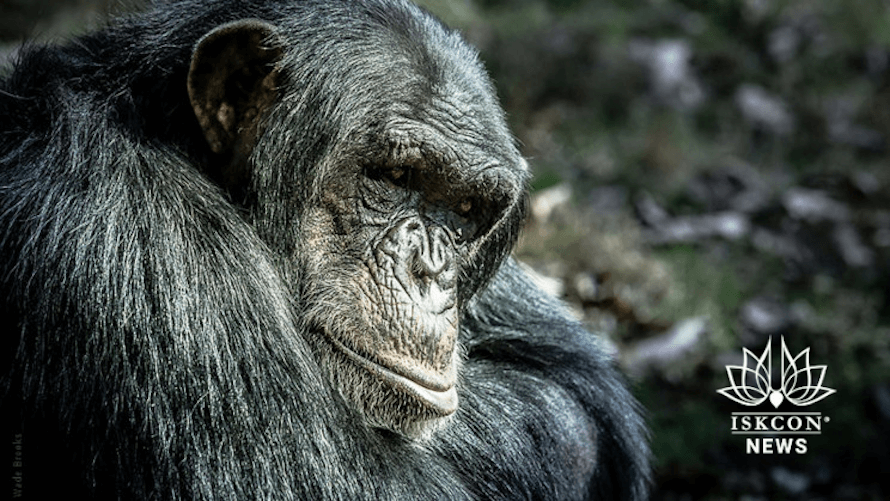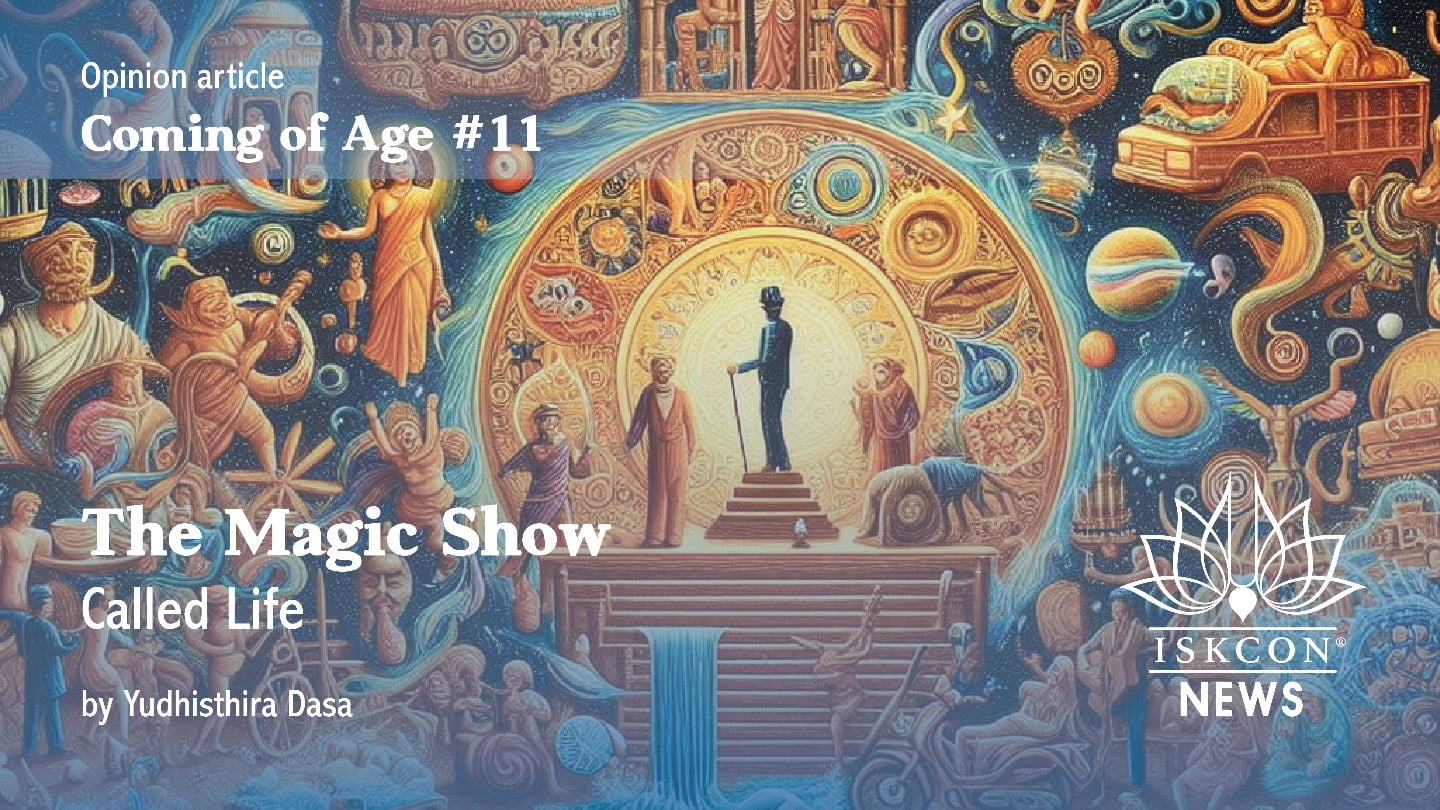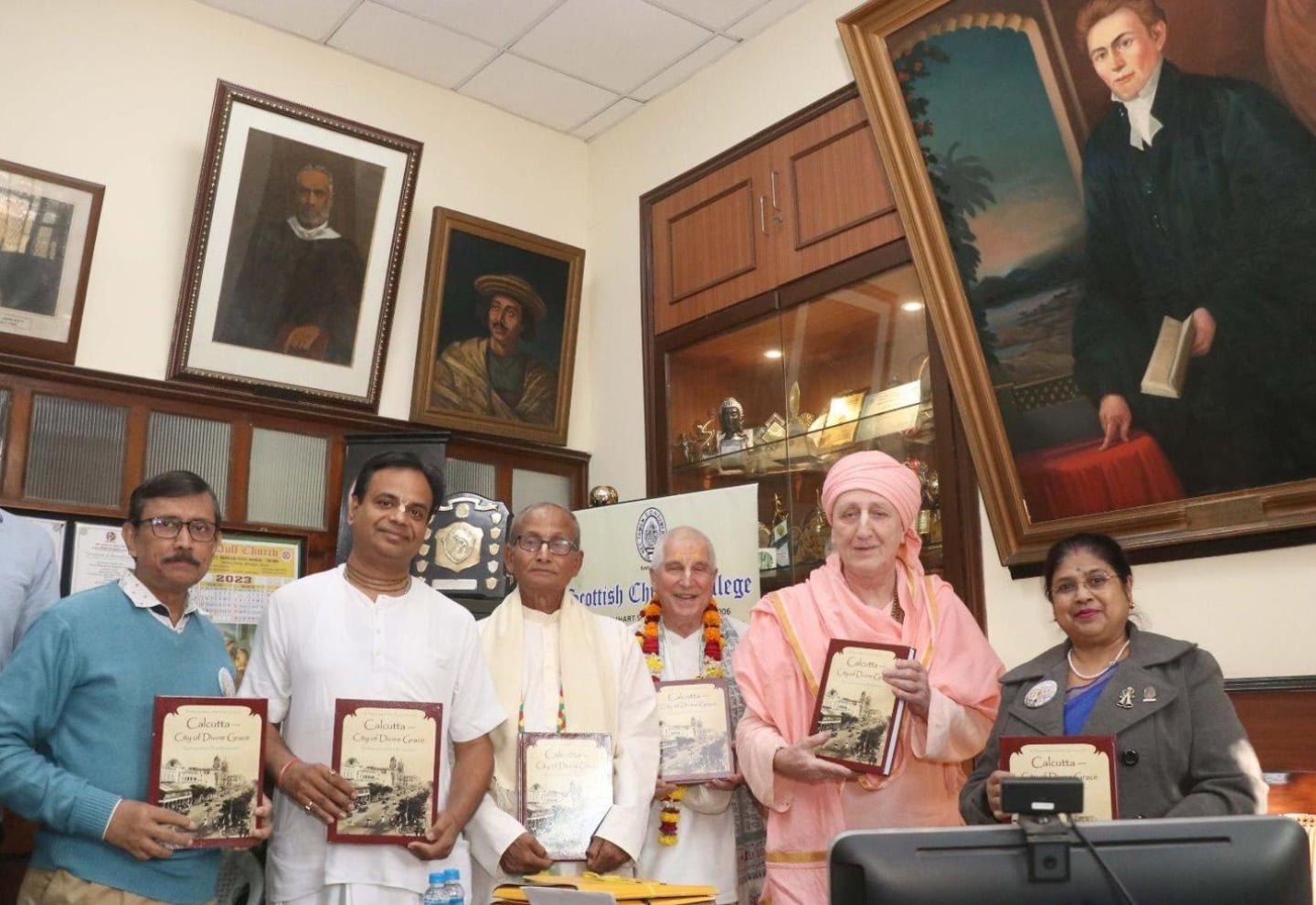Personhood of Animals
By Janatari Devi Dasi | May 28, 2022

Are animals persons? And what does it mean to define an animal as a person? Personhood is a legal concept expanding far beyond biological humans. It is broad enough to not only pertain to humans, it also includes natural monuments and corporations. Under the law, animals are considered things, and property, and are provided little to no legal protection from being used by many as a means to an end. For ethical and legal reasons everything is categorized as a person or a thing. Legally a person is subject to duties and appanages, whereas a thing is considered property. Morally a person is valued for their own sake, and a thing is valued for what can be derived from it. So, what about sentient beings who are considered property? These beings are cognizant and feel both fear and joy.
Most animals are sentient beings, often with sophisticated cognizant abilities. Yet, as animals are legally classified as property, that puts them in a perilous position. Efforts by animal rights activists to provide protection for the animals under the law have produced at best, mixed results. In response to this, many animal rights activists have suggested that all cognitively intelligent animals be classified legally as persons. While it is commonly assumed that personhood is based on the attributes of persons and not animals, the attribute that makes us human is the ability to make choices and to rationalize. Or, the ability to make a choice based on sound judgment. It would be incorrect to think that animals don’t comprehend actions, choices, and consequences. A cat will typically only run across the street if it believes that it is safe from oncoming cars. Hummingbirds will visit where you hang the feeder annually even if you have not hung it up yet understanding that you will put the feeder up for it. Action and consequence. But is this enough to gain animals legal protection? The legal team of The Nonhuman Rights Group believes that it is.
In New York, there is a group of legal philosophers under the moniker, The Nonhuman Rights Project who is fighting a legal battle for animals. Tommy the chimpanzee was the NhRP’s first client. In 2013 lawyer Stephen Wise filed “a petition for a common-law writ of habeas corpus in New York State Supreme Court, Fulton County to demand recognition of Tommy’s legal personhood and right to bodily liberty and his immediate transfer to an appropriate sanctuary. “No one has ever demanded a legal right for a nonhuman animal, until now,” says NhRP President Steven M. Wise of our first of its kind lawsuit, which is based on abundant, robust scientific evidence of chimpanzees’ self-awareness and autonomy.” (Nonhuman Rights Project Client: Tommy) A writ of habeas corpus is used to bring the custodians of a detainee before the court to see if the prisoner’s detention is lawful. Where is Tommy the chimp now you may ask? He is still in solitary confinement, with a T.V. as his only entertainment and no companionship or mental stimulation. The NhRP is still fighting his case. “In the interval since we first denied leave to the Nonhuman Rights Project, I have struggled with whether this was the right decision. Although I concur with the Court’s decision to deny leave to appeal now, I continue to question whether the Court was right to deny leave in the first instance. The issue of whether a nonhuman animal has a fundamental right to liberty protected by the writ of habeas corpus is profound and far-reaching. It speaks to our relationship with all the life around us. Ultimately, we will not be able to ignore it. While it may be arguable that a chimpanzee is not a ‘person,’ there is no doubt that it is not merely a thing.” (Nonhuman Rights Project Client: Tommy) While arguably, Tommy the chimpanzee is still a prisoner who has committed no crime, this is believed to be the first time that a Court of Appeals judge has issued an opinion different from the court.
Traditionally in the legal system, those who are protected under the law are engaged in a sort of social contract within their society. This is a reciprocal agreement wherein members of a society agree to cooperate and for that will receive social benefits. For example, sacrificing some personal freedoms for safety and security. The view of the social contract supports the idea of personal rights and responsibilities. If animals are considered persons, where do they fit into the social contract? They fit into it in a similar way to how foreign nationals are protected while on the soil of another country. It is not that you set foot on foreign soil and your rights are erased. You cannot legally be robbed and beaten for not being a citizen of the country you are in. Even though you do not vote or pay taxes to the nation you are visiting. The laws are there to protect those within the social contract who share a common interest. We share those common interests with foreigners visiting our soil, therefore they are protected under the law.
However, if we place our focus on universal human rights, not just the interests of those protected under the established social contract, the next natural step is to inquire if non-human animals share the interests that these laws are intended to protect.
Animal advocates will tell you that animals do share these same universal interests. Animals have interests in the way that something can be bad or good for them. The same as humans. Something can be considered good when it is beneficial, and bad when it is not. For example, cleaning your vacuum filter causes it to run well, failing to clean it will make the vacuum unusable. However, animals are sentient beings and not objects so they are fully aware when something is beneficial or harmful to them. Comparing an animal to a vacuum cleaner is a poor comparison though as while something may happen to an object, for the animal the action is something positive or negative that she experiences. It is the same as when you experience something and perceive it as positive or negative.
The similarities between animals and humans does not begin and end with the pleasure-pain cycle. In an interview with an unnamed reporter in 1977, Srila Prabhupada had this to say about the nature of animal and human souls: “Some of them, they say the animal has no soul. That is foolishness. An animal has a soul, but the consciousness is not developed. Just like a child. Father’s consciousness and the child’s consciousness, are different. Why it is different? The child’s consciousness is not developed. Father’s consciousness is developed…There is soul, but the consciousness is not developed.” (Prabhupada Room Conversation with Reporter) Both animals and humans are eating, sleeping, mating, and defending. “The humble sages, by virtue of true knowledge, see with equal vision a learned and gentle brāhmaṇa, a cow, an elephant, a dog, and a dog-eater [outcaste].” BG 5.18. The Bhagavad Gita As It Is states in the first line to the purport to verse 5.18 that the Krishna Conscious person does not distinguish between species or caste. These differences are purely on the material platform as a devotee of Krishna views all living beings in relation to Krishna as spirit souls. Krishna as his plenary portion as Paramatma resides in every single body. All our bodies, animal, and humans alike, are the products of our interaction with the three modes of material nature – goodness, passion, and ignorance. “The Supreme Personality of Godhead has created many residential places like the bodies of human beings, animals, birds, saints, and demigods. In all of these innumerable bodily forms, the Lord resides with the living being as Paramātmā. Thus He is known as the puruṣāvatāra.” ŚB 7.14.37 The living entity, the jiva, gets their body so that they can enjoy in whatever way they desire. Krishna puruṣa lives within the jiva to allow him to enjoy.
If we all get the body that we need to enable us to enjoy in the way that we want, that also includes the animals. For the most part, animals have the same basic needs and desires as most persons – eating, sleeping, mating, and defending. And the jiva who resides in that animal body got it because they desired to enjoy it in that way. How many times have you heard people half-jokingly remark that they would prefer to be a house cat because they get to sleep all day, or some other animal because they envy some aspect of that animal’s existence? A lot of times, I’m sure. This is where animals and persons have an intersection point in social contact. For the most part, both parties desire and need the same things. Where people have some form of protection against harm, animals beyond pets do not. It is legal to purchase animals to raise and slaughter for food, to use in animal experimentation, breed them and sell their young for profit, and the list goes on. Why are we unable to exploit other people this way when it is perfectly legal to treat animals in this way? Where do we draw the line and grant animals rights? To stop exploiting them for profit and discarding them when their usefulness to us ends? I suggest that we stop looking for differences and instead begin seeking out our similarities. When we see all living entities with equal vision, our vision becomes clear.












